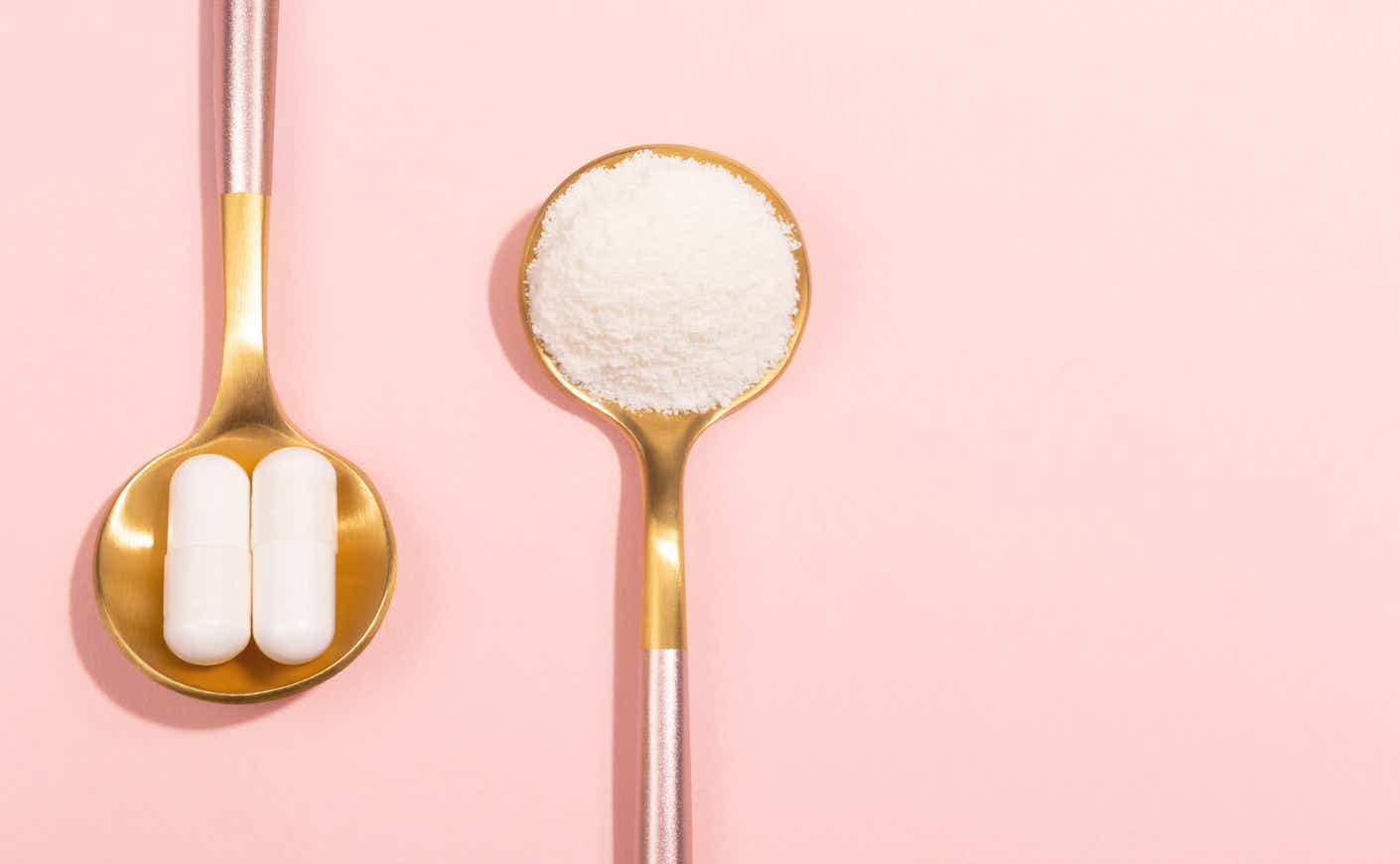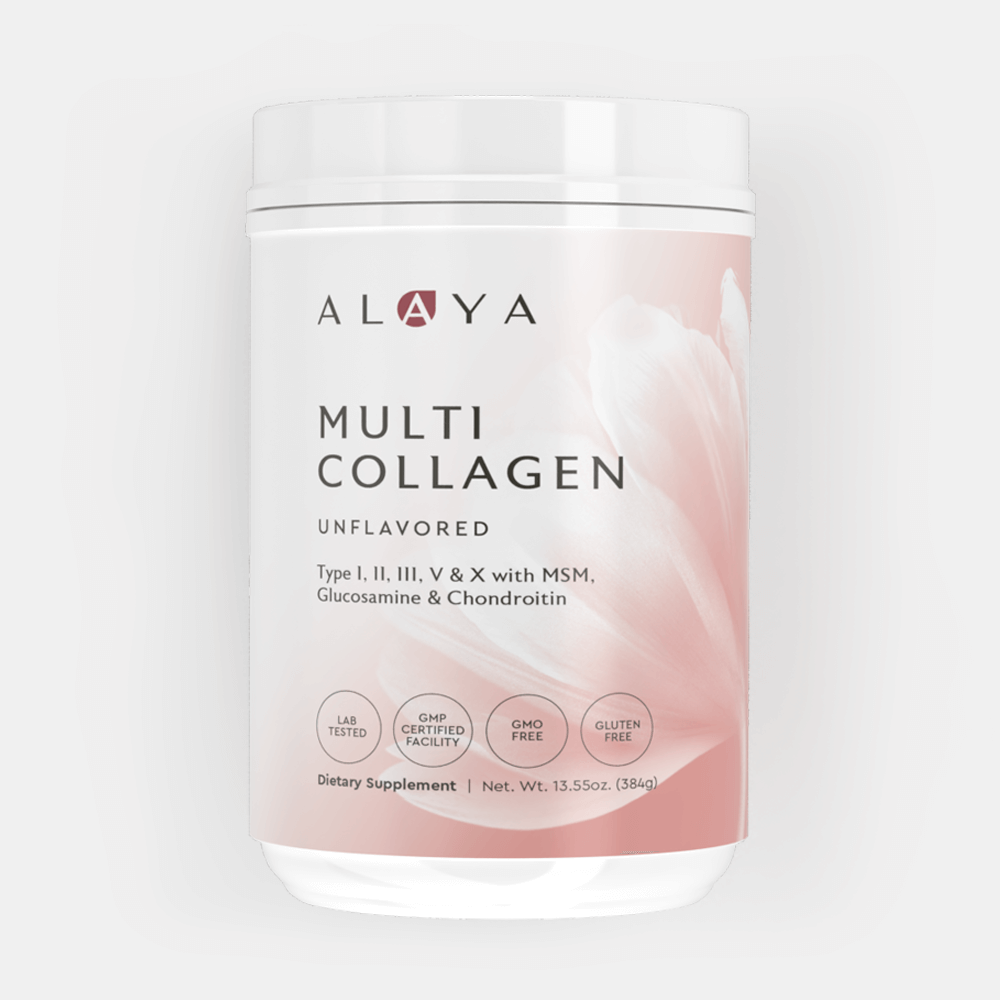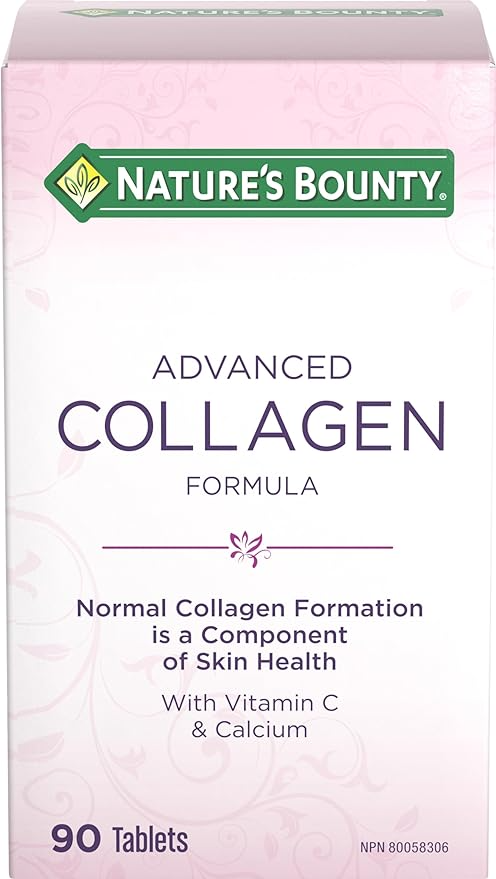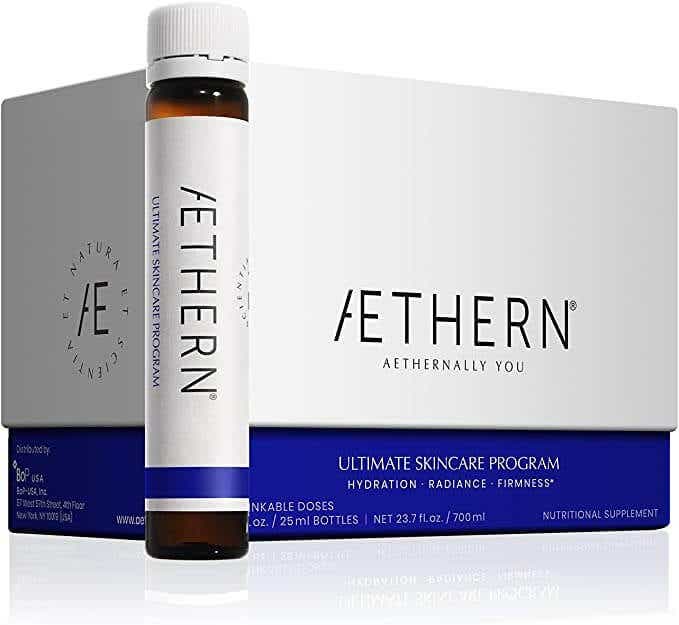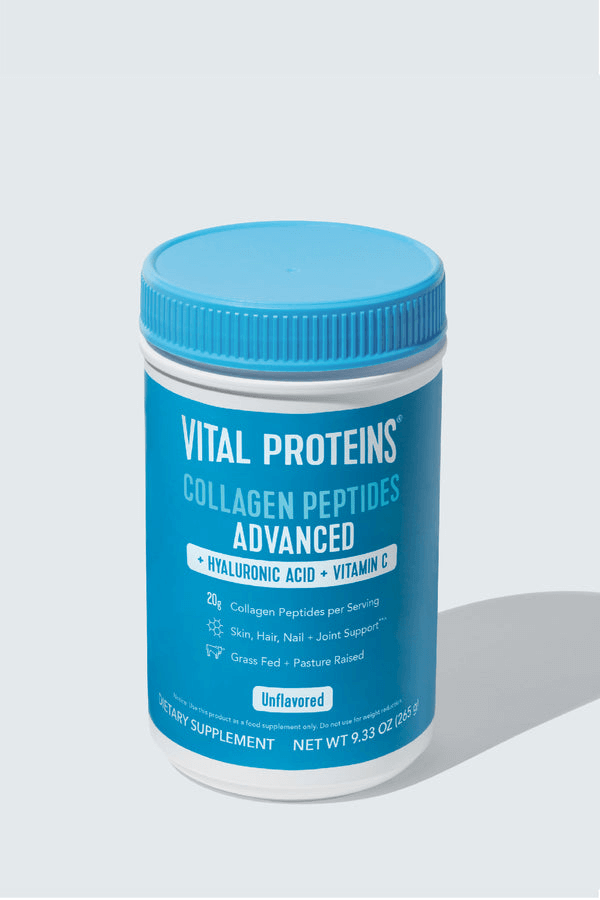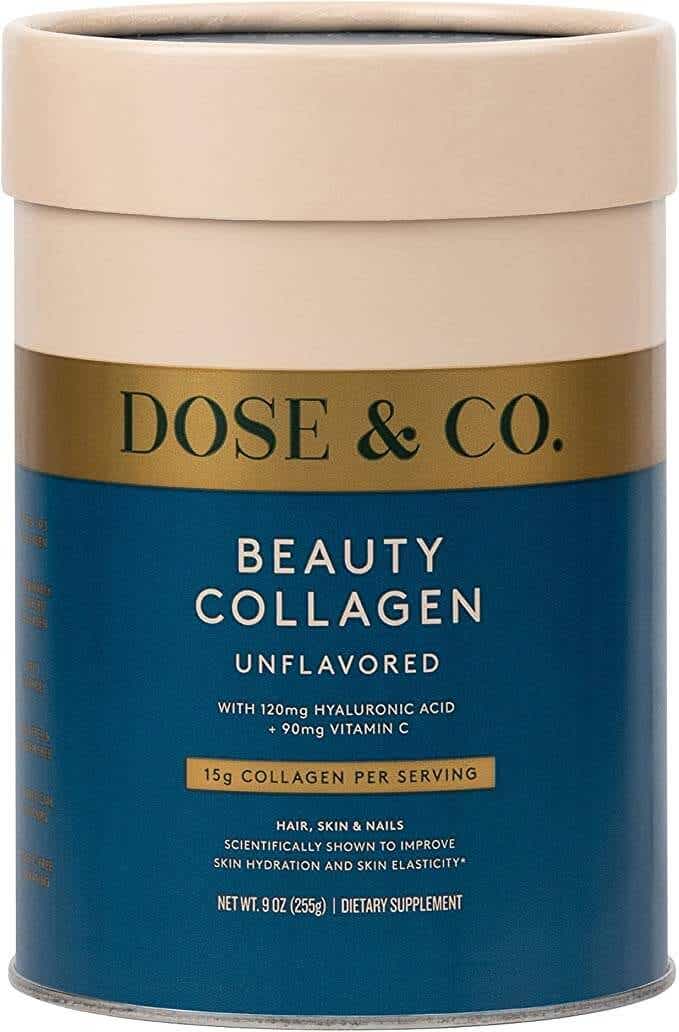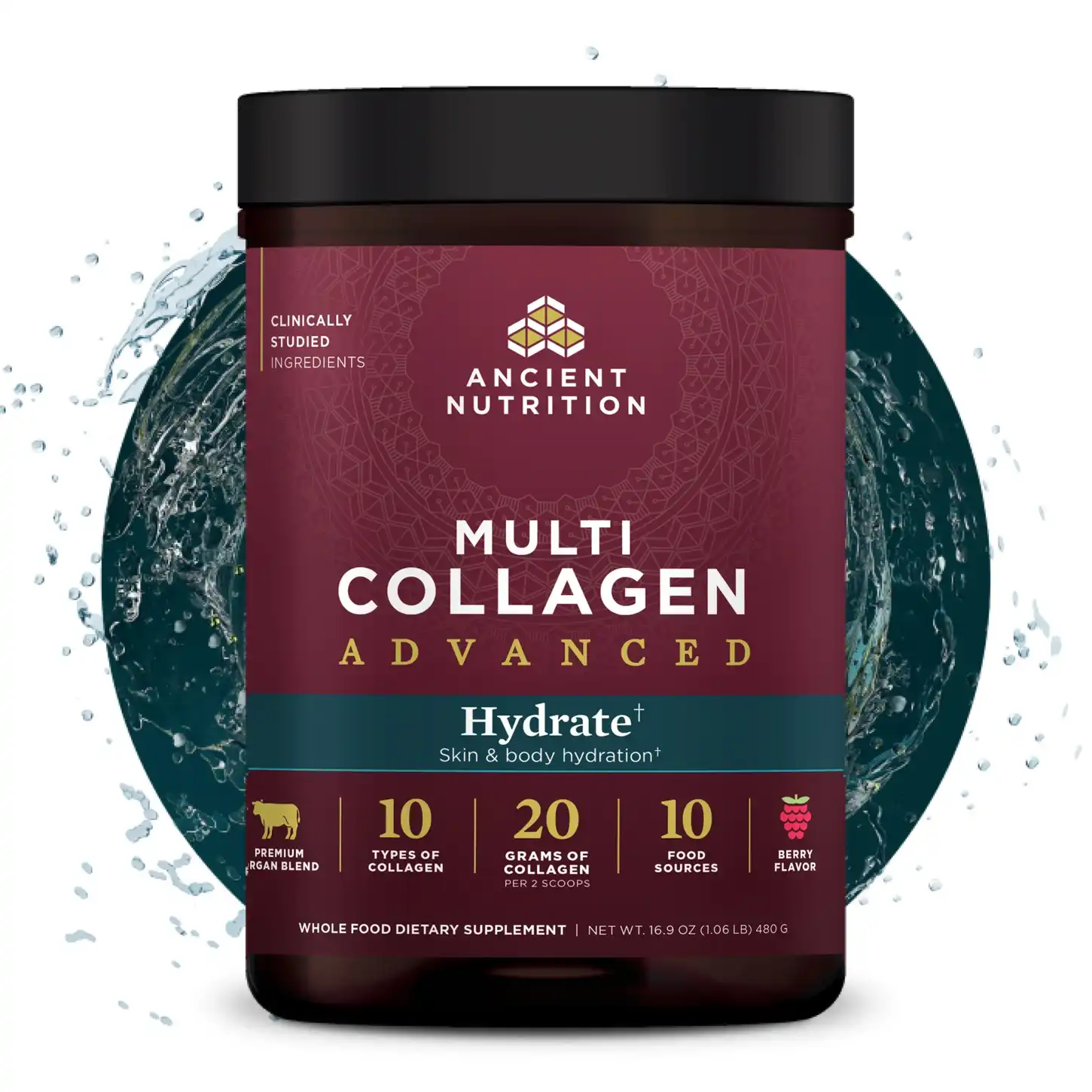Collagen seems to be cropping up everywhere these days. It’s in lotions, powders, capsules, and being pushed as a sort of miracle product for aging skin. And every celebrity and influencer boasts about its benefits. Before you click “buy” on those Instagram ads for a tub of powder your favorite celebrity is supporting, let us explain what this mystery ingredient does. Most importantly, does collagen actually provide any real benefits?
We’re breaking down what it is, the recent research on the protein, and what to look for (and steer clear of) in a collagen supplement.
What is collagen and why has it suddenly become so popular?
Patricia Farris, MD, a dermatologist based in Louisiana who’s practiced for over 30 years, describes collagen as the “backbone of the skin.”
“It’s the supporting structure of what we call the extracellular matrix down in the dermis,” she says. It’s why when we’re young our faces appear fuller, and as collagen production starts to slow in our twenties, we begin to develop wrinkles.
In recent years, brands like Vital Proteins, which boasts celebrity endorsements from the likes of Jennifer Aniston and former Miss Universe Olivia Culpo, Khloe Kardashian’s favorite Dose & Co., and a whole host of others have emerged with their own collagen supplements. They’re being marketed aggressively on social media, and interest in the products has soared, Dr. Farris tells us.
Does collagen provide any real benefits?
Supplements claim to minimize wrinkles, improve the skin’s elasticity, and keep skin more hydrated, says Lauren Ploch, MD, a dermatologist in Georgia. Some have even been touted to treat osteoarthritis, and Kardashian has gushed about how it helped her postpartum hair loss.
But does the research back this up? Unfortunately, we don’t have the cure-all for aging skin because, the answer to that question is, not exactly. Dr. Ploch says it hasn’t been determined if supplements are any more effective than just eating collagen-rich foods, like meat, gelatin, nuts, and soy products. She also says there’s a need for better studies to be conducted in the space. (In the meantime, we’ll be stocking up on nuts!)
Even still, there’s some research that suggests supplements really do work. Dr. Farris points to a 2014 double-blind study that looked at wrinkle volume in over 100 women, 45 to 65 years old. After eight weeks of taking Verisol, a patented collagen supplement, the volume of wrinkles around the participants’ eyes was measured and had decreased. Improvement in skin hydration and elasticity has been shown in other clinical studies too, Dr. Farris says.
What should you look for in a collagen supplement?
Dr. Farris recommends looking for a supplement with hydrolyzed collagen, which is processed and broken down into fragments small enough to be absorbed into the bloodstream. (Collagen is too large a molecule to penetrate the skin topically, so all those collagen creams and lotions you see at the drugstore “is not going to help,” Dr. Farris says.)
Another thing to watch out for is the collagen’s source. The three main types you see on the market are bovine (derived from cows), porcine (from pigs), and marine (from fish), Dr. Farris says. Marine collagen is the most popular, but there’s some concern about heavy metal toxicity in these supplements, and they’re more likely to trigger allergic reactions because of potential shellfish contamination.
Dr. Ploch also suggests avoiding products that are packed with protein, if you’re already on a high-protein diet. “Some supplements have almost 20 grams of protein per serving, which is nearly half the recommended daily amount for an adult female,” she says.
Dr. Farris recommends a product by Nature’s Bounty, which sells a supplement with Verisol collagen, and a collagen drink sold by Aethern. Check out those products and others picked by our editors.
The Best Collagen Products
Alaya Multi Collagen
Alaya
Adding a scoop of collagen to your morning coffee, tea, or water is the easiest way to incorporate it into your routine — it doesn’t require adding a step to your skincare routine or remembering to take another pill. This powder comes in an unflavored option, so it won’t interfere with your favorite beverage’s taste, but if you prefer to drink it in a smoothie, you can also snag it in chocolate, vanilla, and raspberry lemonade flavors.
In addition to collagen, this formulation contains glucosamine and chondroitin, which aid in relieving joint pain.
Nature’s Bounty Optimal Solutions Collagen Skin Care Formula
Amazon
If you’re looking to dip your toes into the collagen world but don’t want to spend a fortune, this powder by Nature’s Bounty is a great place to start. It’s only $23 for 45 servings, and Dr. Farris recommends it because it has Verisol collagen in it, which is the same type of collagen used in that 2014 study we mentioned.
AETHERN Ultimate Skincare Program Liquid Collagen Drink Formula
Amazon
Dr. Farris personally recommends this collagen supplement by Aethern, which you can drink directly from the vial it comes in or mix with water or juice. It’s on the pricey side, but reviewers swear it makes their skin glow and helps reduce joint pain. “I have severe arthritis in my knees,” one reviewer writes. “This collagen is amazing. It took the pain away and my skin was glowing.”
Vital Proteins Collagen Peptides
Vital Proteins
You’ve probably seen Vital Proteins advertised on social media (or gushed about by your favorite celebs). It contains hydrolyzed collagen as well as hyaluronic acid and vitamin C, both of which may help with skin texture and tone.
Dose & Co. Collagen Peptides
Amazon
As mentioned, Dose & Co. is beloved by the rich and famous. And it seems to be worth the hype because it contains hydrolyzed collagen, which is easier for your body to absorb thanks to its small molecule size.
Ancient Nutrition Multi Collagen Advanced Hydrate
Ancient Nutrition
If you do want to increase the amount of protein in your diet, you can opt for a collagen supplement that has added protein. This one by Ancient Nutrition includes 18 grams of protein with just two scoops, which is nearly half of the daily recommended intake for women. That’s a lot, but for those who struggle to get protein through diet alone, this could help. (Just consult a medical professional first, of course.) The brand is known for its popular collagen formulas, but this is their newest, most advanced blend, featuring Spanish red cave salt and red marine algae, two minerals that help with hydration too.







